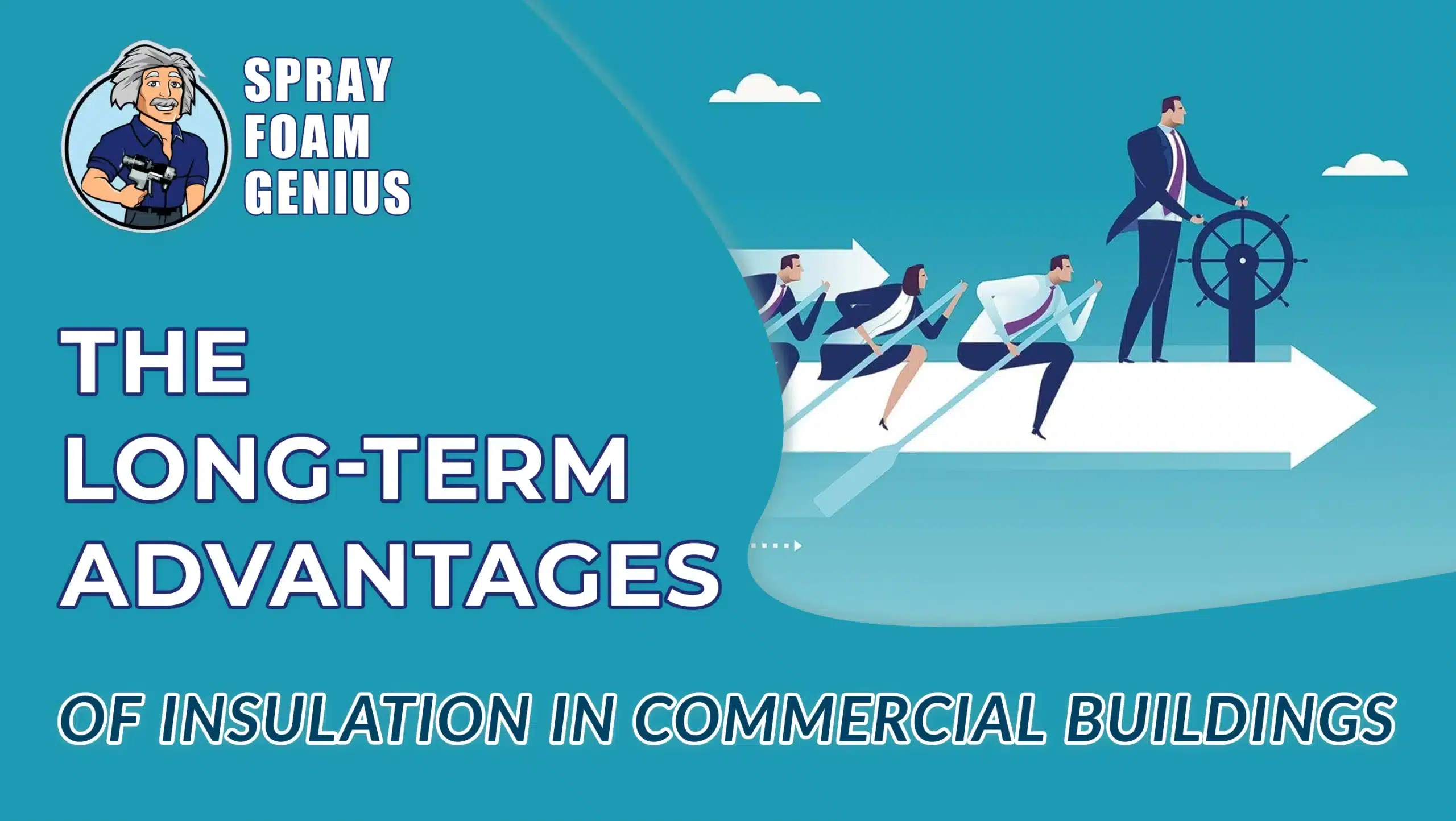
Insulation plays a vital role in maintaining the efficiency and functionality of commercial buildings. By significantly improving energy efficiency, reducing costs, and enhancing comfort, proper insulation can yield long-term benefits for building owners, managers, and occupants alike. At Spray Foam Genius Marketing, we specialize in providing professional SEO, Google My Business optimization, and lead generation services tailored specifically for insulation contractors. In this post, we’ll explore the long-term advantages of insulation in commercial buildings, demonstrating its importance and impact on overall operational efficiency.
Understanding Insulation: What It Is and Why It Matters
Insulation refers to materials used to resist the flow of heat, sound, or electricity. In the context of commercial buildings, insulation primarily focuses on thermal efficiency. Proper insulation minimizes heat loss in the winter and keeps buildings cooler during the summer months. By improving temperature regulation, insulation contributes to a comfortable indoor environment and can lead to substantial energy savings.
Key Types of Insulation Used in Commercial Buildings
There are several types of insulation materials commonly used in commercial settings, including:
- Fiberglass Insulation: Known for its cost-effectiveness and availability, fiberglass insulation is often used in walls, ceilings, and floors. It provides excellent thermal resistance (R-value) and soundproofing.
- Foam Board Insulation: This rigid insulation offers high R-values with minimal thickness, making it ideal for areas where space is limited.
- Sprayed Foam Insulation: Though we won’t delve into the specifics, this type is valued for its ability to expand and fill gaps, creating a comprehensive barrier against air leaks.
- Mineral Wool (Rock Wool) Insulation: This fire-resistant material not only provides thermal insulation but also offers soundproofing benefits.
- Cellulose Insulation: Made from recycled paper products, cellulose is an eco-friendly option that offers good thermal performance.
Long-Term Financial Savings
One of the most compelling reasons to invest in insulation for commercial buildings is the potential for long-term financial savings.
Reduced Energy Costs
With energy costs continuously rising, efficient insulation helps reduce heating and cooling expenses. According to the U.S. Department of Energy, properly insulated buildings can save up to 20% on heating and cooling bills. Over the lifespan of a commercial building, this can translate to significant savings, allowing funds to be allocated to other critical areas of the business.
Increased Property Value
A well-insulated commercial building is more attractive to potential buyers or tenants. As energy efficiency becomes a more pressing concern, properties with high R-values are likely to command higher market prices. Furthermore, businesses that showcase their commitment to sustainability through energy-efficient practices can enhance their reputation and brand image.
Tax Incentives and Rebates
In some regions, governments offer tax credits or rebates for energy-efficient upgrades, including insulation. This creates an excellent opportunity for insulation contractors to emphasize the financial and environmental benefits of their services. By investing in high-quality insulation, businesses and homeowners may not only save on energy costs but also receive financial incentives that can further offset installation expenses. These rebates and tax credits can make the initial investment more attractive, increasing demand for the services offered by insulation contractors.
Enhanced Comfort and Productivity
The comfort of occupants plays a crucial role in productivity and satisfaction within commercial spaces.
Improved Indoor Air Quality
Proper insulation can reduce the infiltration of outdoor pollutants, ensuring that the indoor air remains clean and safe. This is particularly important in commercial buildings where employees or clients may spend extended periods.
Consistent Temperature Control
Well-insulated buildings maintain a stable indoor temperature, preventing hot and cold spots that can lead to discomfort. A comfortable environment fosters productivity, as employees can focus on their tasks without being distracted by temperature fluctuations.
Soundproofing Benefits
Insulation also contributes to sound control, minimizing noise from outside or other areas within the building. This is especially beneficial in shared spaces, ensuring a quieter, more conducive working environment.
Environmental Benefits

In today’s eco-conscious world, the environmental impact of commercial buildings is under scrutiny.
Lower Carbon Footprint
By enhancing energy efficiency, insulation contributes to a reduction in greenhouse gas emissions. Efficient buildings require less energy for heating and cooling, leading to a smaller carbon footprint. As businesses increasingly seek to align with sustainable practices, insulation becomes a critical element in achieving environmental goals.
Conservation of Resources
Insulation reduces the overall demand for energy resources. By improving energy efficiency, businesses can contribute to the conservation of natural resources, promoting a more sustainable future.
Compliance with Building Codes
In many regions, energy codes and regulations require commercial buildings to meet specific insulation standards. By investing in quality insulation, businesses can ensure compliance with local regulations and avoid potential fines or costly renovations in the future.
Staying Ahead of Regulatory Changes
As energy efficiency regulations continue to evolve, staying compliant is paramount. Insulation is an integral part of meeting current standards and adapting to future regulations.
Building Longevity and Durability
Proper insulation contributes to the overall longevity and durability of commercial buildings.
Protection from Moisture and Mold
Insulation helps prevent moisture accumulation within walls and ceilings, reducing the risk of mold and mildew growth. Mold not only poses health risks but can also lead to structural damage if left unchecked.
Structural Integrity
By minimizing thermal expansion and contraction, insulation helps maintain the integrity of the building’s structure. This can lead to fewer repairs and renovations over the lifespan of the building, further contributing to cost savings.
Invest in Insulation for Long-Term Benefits
At Spray Foam Genius Marketing, we recognize the long-term advantages of insulation in commercial buildings. From financial savings and enhanced comfort to environmental benefits and compliance with regulations, the importance of insulation cannot be overstated. Investing in quality insulation is not merely an expense; it is a strategic decision that can yield substantial returns for years to come.
If you’re considering insulation for your commercial building or looking to optimize your energy efficiency, we are here to help. For more information on our services or to discuss your specific needs, please contact us at 877-840-FOAM for the USA or 844-741-FOAM for Canada. You can also visit our website at sprayfoamgeniusmarketing.com or email us at [email protected].
Let’s work together to create a more energy-efficient future for your commercial space!
- 5 Google My Business Hacks to Double Your Leads for Spray Foam Insulation Contractors - January 14, 2025
- Why Spray Foam Contractors Cannot Ignore Reputation Management in 2025 - January 13, 2025
- Local SEO Secrets Every Spray Foam Contractor Must Know to Win in 2025 - January 13, 2025

